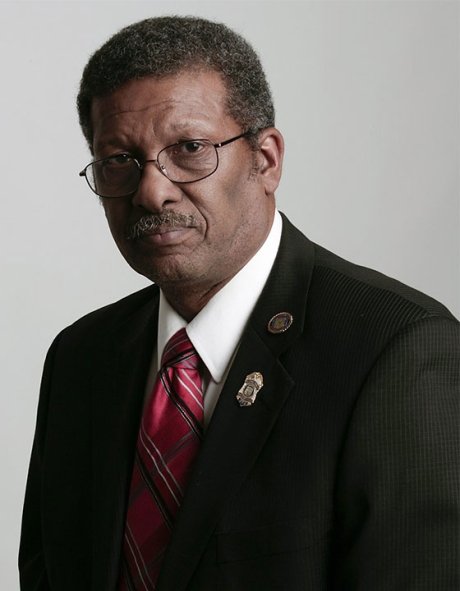National Association of Black Law Enforcement Officers Look to Alum Charles Wilson to Move Forward
- News & Events
- News
- National Association of Black Law Enforcement Officers Look to Alum Charles Wilson to Move Forward

Wilson intends to put a spotlight on lethal force, racial profiling and police brutality.
When Charles Wilson ’11, M.S. ’19 started out as a law enforcement officer in Dayton, Ohio in 1971, he couldn’t have envisioned the changes that Black officers like him have seen in the profession since then. However, Wilson, who served as a lieutenant on Rhode Island College’s campus police force for 23 years before retiring in 2016, says a need for more reform persists.
Issues such as excessive use of lethal force, racial profiling and routine brutality from officers continue to plague law enforcement. That’s a major reason why Wilson agreed to chair the 10,000-member National Association of Black Law Enforcement Officers (NABLEO) once again after the group’s executive board appointed him to a two-year term in January. Wilson previously served as NABLEO’s chair from 2008-2021.
Formed in 2002, NABLEO’s mission includes monitoring issues that impact the employment, promotion, and retention of minority law enforcement officers; eradicating police misconduct; and enhancing and empowering the Black community.
As NABLEO chair, Wilson says he will continue to speak out on miscarriages of justice, such as the 2023 death of Tyre Nichols, a Black Memphis, Tennessee man who was beaten to death by officers during a traffic stop.
“I was saddened and felt an immense amount of grief about Nichols’ death because this wasn’t a case of white officers killing another Black man. It was five Black officers just like me who allegedly did this,” says Wilson of the cops who are expected to face state and federal charges later this year. “That case has brought destruction to the more than 50 years of change Black officers have sought to make in our communities,” he says.
Nonetheless, Wilson says NABLEO will remain steadfast in its efforts to protect and serve Black citizens.
“Most Black cops come from the communities that they serve,” Wilson says, noting that trainings sponsored by NABLEO focus on topics such as improving responses to the mentally ill, compassionate policing and de-escalation tactics.
NABLEO, which has 20 chapters across the nation, invites officers of any ethnic background to participate in its training sessions and annual conferences.
“Opening up our training to all officers gives these cops a better concept of the way Blacks police our neighborhoods,” he says. “Traditionally, police have been trained to be warriors, but we must change that concept to becoming guardians instead. That is what our communities deserve.”
Wilson says he’s encouraged by the rising number of Black police chiefs across the country –particularly an increase in Black female chiefs – but wants to get the word out to recruit more officers of color. According to the Bureau of Justice Statistics, the percentage of local police officers in the United States who are Black has remained the same for decades: at 12 percent from 1997 to 2020.
“I want potential Black and Brown officers to know that law enforcement is one of the few jobs where they can make a serious impact on the communities in which they live while earning decent pay and benefits,” says Wilson, adding that he thinks the image of police officers is gradually improving.
“I believe 99 percent of law enforcement officers are good officers who want to do their jobs, follow the rules and go home to their families. But there’s that one percent of bad eggs who get all the press.”
